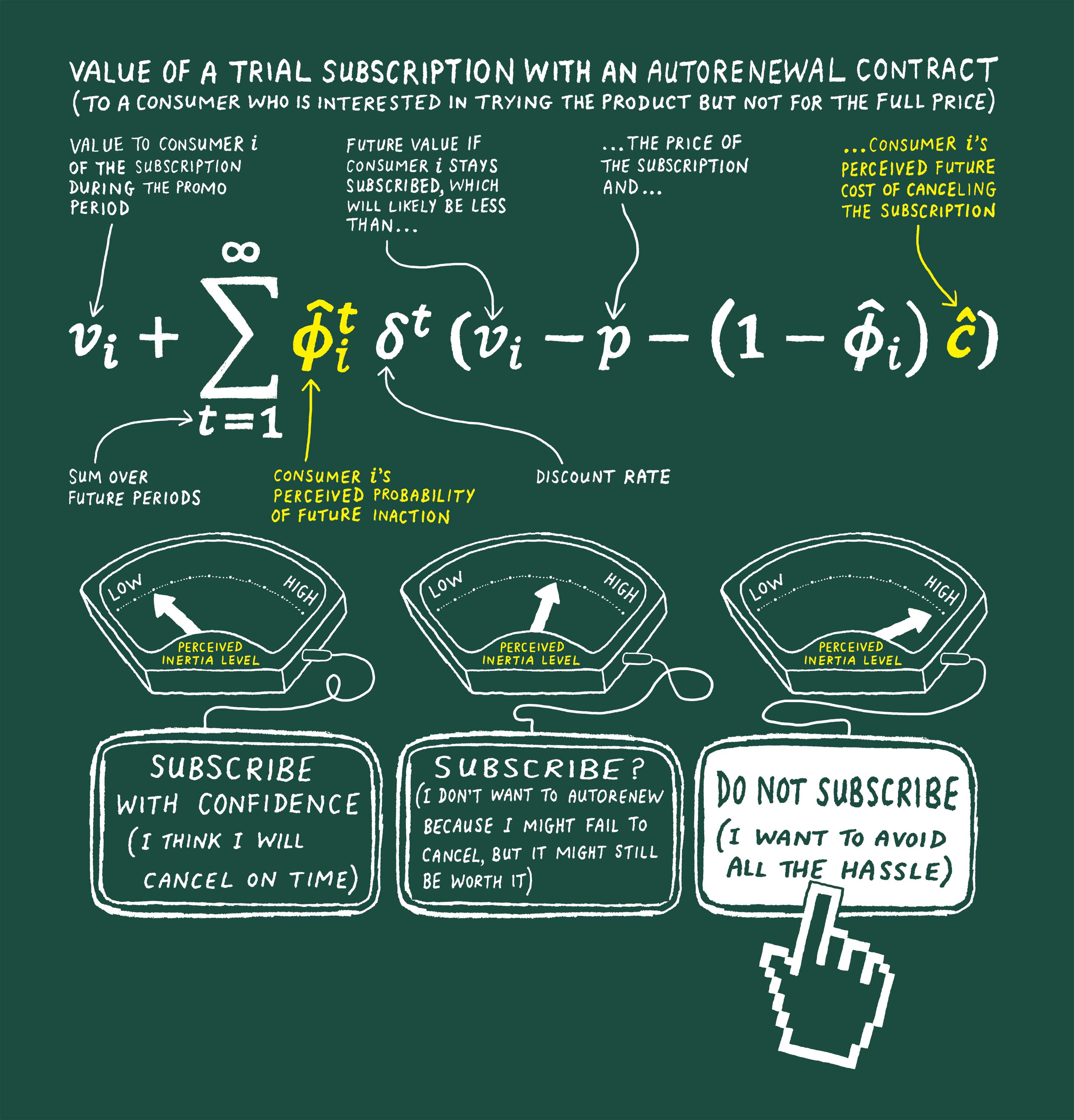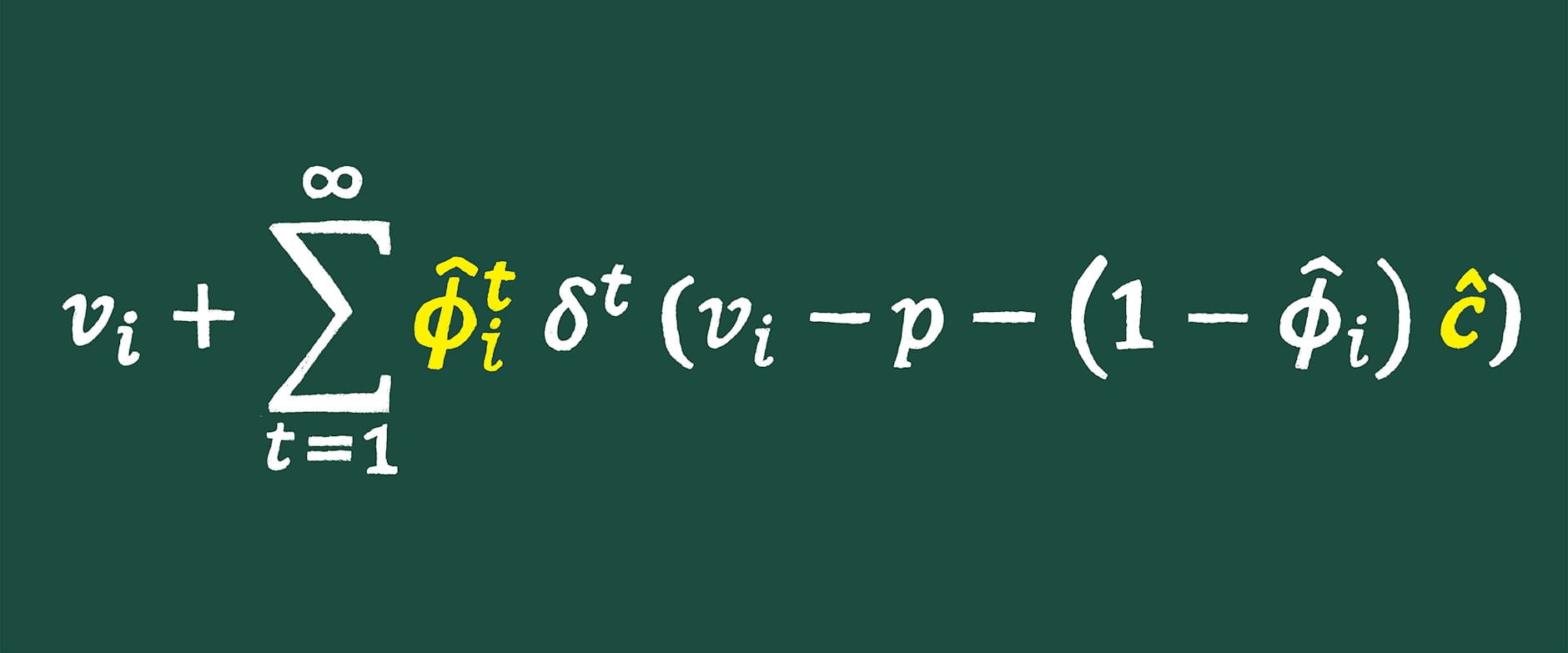Many people have received discounted subscription promotions that, at expiration, automatically renew at the full price. Businesses that use such offers may hope to take advantage of customers’ forgetfulness or distraction, knowing that some people will accept an offer, plan to cancel before the discount expires, and then fail to do so. But HEC Paris’s Klaus M. Miller, Stanford’s Navdeep Sahni, and Chicago Booth’s Avner Strulov-Shlain find that many consumers are aware of their own inertia, so avoid signing up for a promotional offer altogether. These potential customers anticipate that their expected inaction will incur potentially high costs, which include not just the price of a regular subscription but also the time and effort involved in trying to cancel it. Companies would do better if they were instead to offer contracts that automatically expire at the end of a promo period and let consumers decide whether to opt into a renewal, the researchers find. To learn more, read “Why Locking In Subscribers Is Bad for Business.”

Illustration by Peter Arkle
Your Privacy
We want to demonstrate our commitment to your privacy. Please review Chicago Booth's privacy notice, which provides information explaining how and why we collect particular information when you visit our website.
